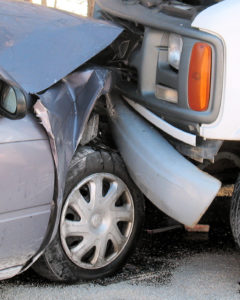Distracted Driving in Virginia
April 13, 2022 by Jean Humbrecht


Distracted Driving in Virginia is a Leading Cause of Car Accidents
Every year distracted driving in Virginia and throughout the country causes many unnecessary car crashes, injuries, and fatalities. And every year the number of accidents involving distracted driving in Virginia increases.
As a result of this increasing trend, Congress has declared April as National Distracted Driving Awareness Month. During National Distracted Driving Awareness month, organizations work to promote safe driving habits and focus on educating Americans about the dangers of distracted driving.
Distracted Driving in Virginia
Traffic accidents and resulting deaths are increasing every year. A factor in many of these accidents is distracted driving-whether it be a distraction from cell phones, in-vehicle technology, passengers, alcohol or drug consumption, eating and drinking while driving, grooming, adjusting volume, looking at a GPS, or the less obvious factors such as stress or fatigue, among other things. Teenagers are at an even higher risk of being involved in a car accident because of texting while driving and other distracted driving in Virginia
For more information on causes of distracted driving in Virginia, read the Virginia Tech Transportation Institute article linked here.
Types of Distractions While Driving
There are four types of distractions while driving-visual, auditory, manual, and cognitive.
Visual distractions are caused by looking at something instead of the road. Auditory distractions are caused by listening to something. Manual distractions are distractions caused by doing something with one’s hands other than using the steering wheel or a device in the car required for driving. Cognitive distractions include thinking about something not related to driving.
For more information on the types of distracted driving, read the article by National Today linked here.
Cell Phone Use is a Major Contributor to Distracted Driving in Virginia
As one can assume, cell phone use is a major factor in traffic accidents. It is hard to know exactly how many accidents are caused by distracted driving from cell phone use. However, studies show that even if drivers use hands-free technology to use their cell phone while driving, they are still less likely to notice potential hazards due to their distraction.
Additionally, many people mistakenly think that because new vehicles come equipped with technological features that they are safer by using these features. This technology includes the ability to call or send a text by setting up the phone to connect to the vehicle and therefore be able to speak commands into the phone while driving, such as to make a call to a contact or send a voice-to-text message.


A driver is even more likely to be a victim of a crime if he or she is distracted in any way. This is because the driver is not paying attention to his or her surroundings, no matter how much he or she is making a conscious effort to do so.
In efforts to force compliance with safety measures, Virginia has recently enacted a law prohibiting having a handheld communication device in one’s hand AT ALL while driving. This is usually referred to as the Texting While Driving law.
For more information on using a handheld personal communication devices while driving in Virginia, click here.
Ways to Prevent Distracted Driving in Virginia
There are many ways drivers can reduce the risk of danger associated with distracted driving in Virginia, such as using cell phone blocking apps that prevent incoming or outgoing calls or texts while driving, pulling over to use the phone, having a passenger send or respond to a text, putting the phone away completely while driving, driving at the speed limit, not driving under the influence of drugs or alcohol, and continuing to look in rearview mirrors and blind spots instead of relying on technology safety features, among many other things.
***DISCLAIMER: THE MATERIAL AND INFORMATION CONTAINED IN THIS POST, ON ANY PAGES ON THIS WEBSITE, AND ON ANY PAGES LINKED FROM THESE PAGES, ARE FOR GENERAL INFORMATION ONLY AND NOT LEGAL ADVICE. YOU SHOULD CONSULT A LICENSED ATTORNEY IN YOUR JURISDICTION BEFORE RELYING ON ANY OF THE INFORMATION CONTAINED ON THESE PAGES. SENDING EMAIL TO OR VIEWING INFORMATION FROM THIS WEBSITE DOES NOT CREATE AN ATTORNEY-CLIENT RELATIONSHIP***
![]()
![]()
![]()
![]()
![]()
![]()
![]()
![]()
![]()
![]()
![]()
![]()





